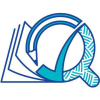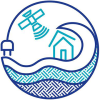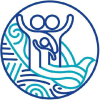Get to know » Students » Self-reflections :
Student difficulties
The PILNA 2021 student questionnaire collected information about difficulties students experienced beyond well-being. Specifically, the questionnaire asked students to respond to statements about their ability to learn, manage themselves, and navigate their environment. Their responses highlight the learning support needs in the region.
Students were provided with a list of situations and were asked to indicate whether they had any difficulty with them. The situations were framed around physical, cognitive, and behavioural challenges, such as seeing, hearing, managing behaviour and walking. The responses they could give were ‘No difficulty’, ‘A little difficulty’, ‘A lot of difficulty’, or ‘I cannot do it at all’.
Proportions of students experiencing challenges
Table STT1.7 lists the challenges to student learning measured by the questionnaire. This table also shows the proportions of year four and year six students who reported these as either ‘A lot of difficulty’ or ‘I cannot do this at all’. This allows us to identify the proportion of students on whom these factors posed a severe burden.
The distribution of students reporting at least ‘A lot of difficulty’ across the eight items ranged between 3% and 31% for both year four and year six students.
The most frequent difficulty was ‘Controlling your behaviour’ (year four, 16%; year six, 31%). Other difficulties were experienced in different proportions by year four and year six students, possibly due to sample size. For example, ‘Concentrating and focusing your attention’ was experienced by 4% of year four students and 22% of year six students; ‘Being understood by other people when you speak’ was experienced by 10% of year four students and 19% of year six students; ‘Seeing, even if wearing glasses’ was experienced by 15% of year four students and 6% of year six students; and ‘walking or climbing steps’ was experienced by 14% of year four students and 6% of year six students.
What does this mean?
Many students in Niue are experiencing behavioural challenges. Also, various proportions of year four and six students are experiencing other learning challenges, such as concentrating and making themselves understood when speaking, seeing, and walking.
While there may be a need to address behavioural challenges, there is a need to understand trends in other student challenges further, specifically, whether differences between year four and year six students are the result of the small sample size or other factors. These findings can inform learning support activities in Niue.








